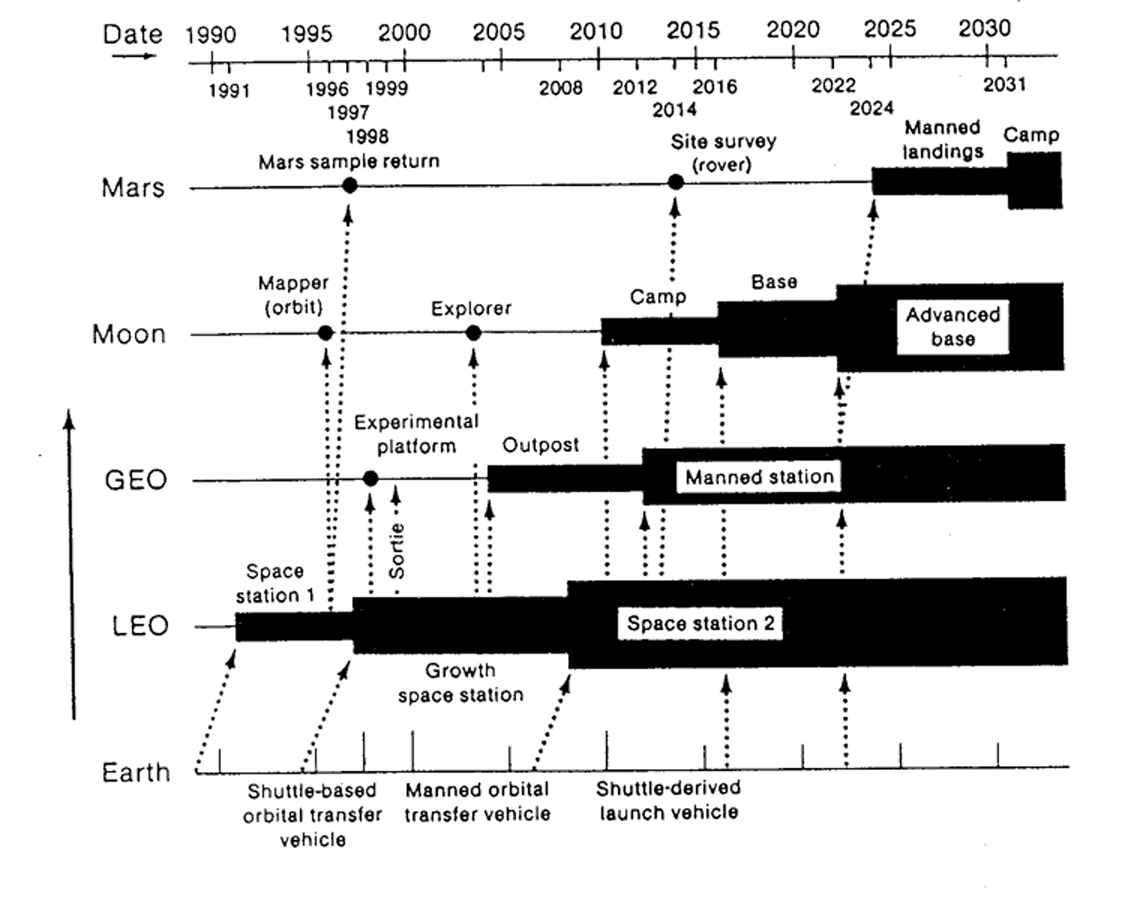
Most operating terrestrial mines have a very high rate of return (some on the order of 100 percent) merely to pay for finding and operating the ones that failed. Mining is a high risk business. Exploiting nonterrestrial resources will be even riskier; however, the returns in the long run may be much larger than for any single terrestrial mineral deposit.
The Market
While reasonable investigators have estimated nonterrestrial resource needs, so far no firm market, either product or quantity, has been identified. Meaningful detailed mine design and engineering work cannot begin until the market is better understood; however, the
scenario presenlted by the LOX-to- LEO concept is useful in scoping a project. To produce and deliver to LEO the required 100 metric tons per year requires that 400 metric tons per year be produced on the Moon. There is also the possibility of producing bulk material and iron as byproducts for use on the Moon or in cislunar space. At this market size (which is a reasonable anticipation of the space transportation system requirements of a "business as usual" space program-see figure 1), the supply of lunar oxygen would offset transportation costs of approximately $600 000 000 per year for transporting oxygen from Earth to a space station using the Space Shuttle.
Figure 1

Baseline Scenario
If NASA continues its business as usual without a major increase
in its budget and without using nonterrestrial resources as it expands
into space, this is the development that might be expected in the next
25 to 50 years. The plan shows an orderly progression in manned missions
from the initial space station in low Earth orbit (LEO) expected in the 1990s,
through an outpost and an eventual space station in geosynchronous Earth orbit
(GEO) (from 2004 to 2012), to a small lunar base in 2016, and eventually
to a Mars landing in 2024. Unmanned precursor missions would include
an experiment platform in GEO, lunar mapping and exploration by robot, a
Mars sample return, and an automated site survey on Mars. This plan can be
used as a baseline scenario against which other, more ambitious plans
can be compared.
![[NASA]](images/NASAball.gif)
![[Ames Research Center]](images/arclogo1.gif)
|
WebWork: Al Globus, Bryan Yager, and Tugrul Sezen |
![[LifeSciences]](images/lslogot.gif)
![[Space Settlement]](images/splogosm.gif)
|